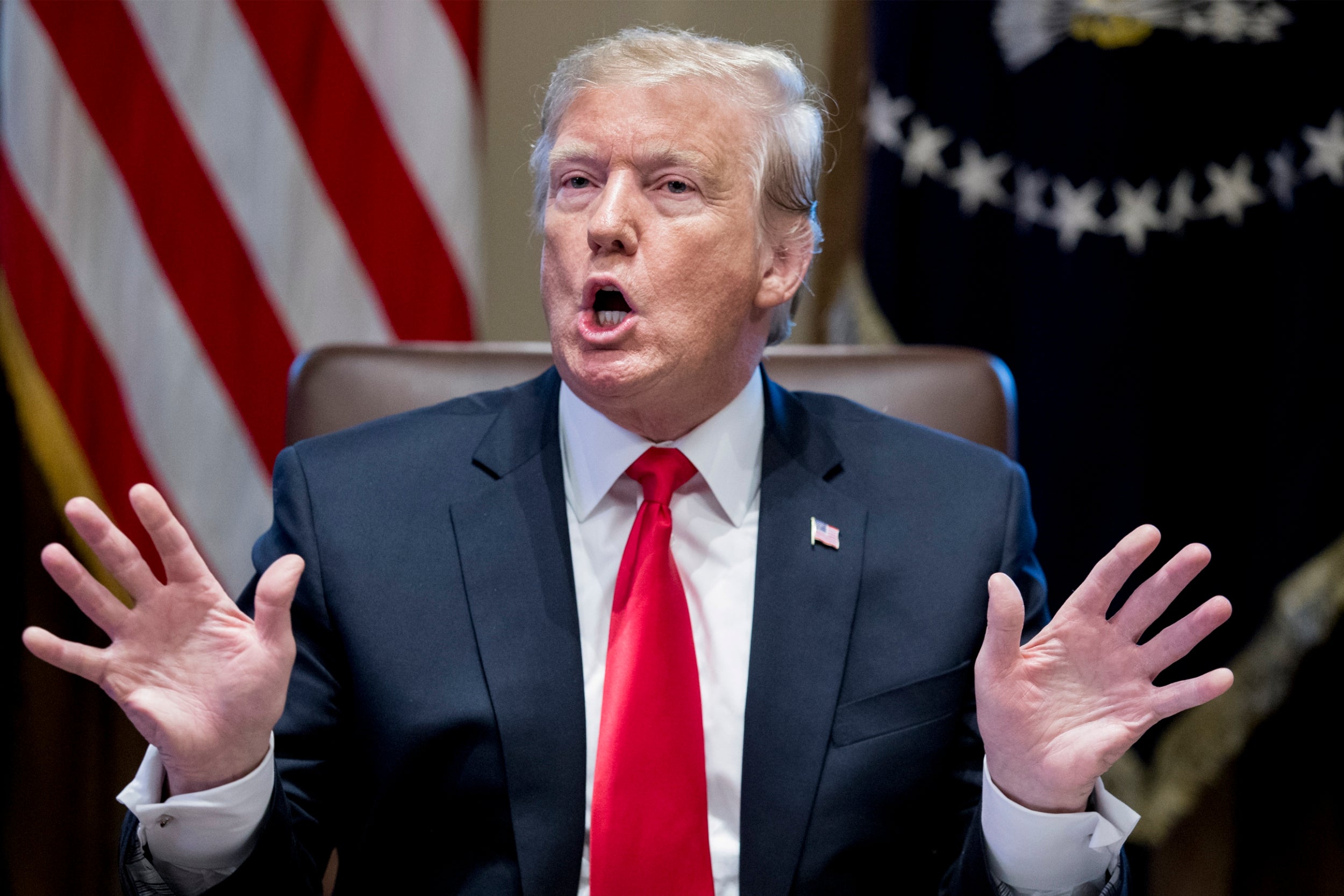The Independent's journalism is supported by our readers. When you purchase through links on our site, we may earn commission.
As an Afghan citizen, this is why I'm not worried that Trump is withdrawing his troops from my country
Afghanistan is stronger today than it was when the Taliban could easily take advantage, but a plan needs to be put in place if peace is to be maintained

President Donald Trump’s surprise announcement about the withdrawal of half of American troops from Afghanistan has created mixed feelings among Afghans.
Many fear that the withdrawal of US troops could lead to political instability, give the Taliban more power and thus see them recapture Kabul as they did in 1996, others are more hopeful their departure will facilitate peace talks.
The tragic history underlying these concerns generally points back towards Soviet withdrawal from Afghanistan in 1989, when the Mujahideen coalition begun fighting against President Mohammad Najibullah's government. It would be another three years – March 1992, to be exact – when finally, Najibullah agreed to step aside.
Following that, the second wave of the civil war started, the Mujahideen fought against each other and various groups announced their government in different provinces. Now, whenever the ordinary people hear about the drawdown of the American troops, these are the very real possibilities that they think about.
In response to Trump’s announcement, Fazl Fazili, chief advisor to the president of Afghanistan, tweeted that the departure of a few thousand foreign military advisers would not affect Afghan security.
He maintained that in the past four and a half years, security has been solely in the hands of Afghans and the final goal as part of those efforts is for Afghan National Defense and Security Forces (ANDSF) to stand on their feet and protect and defend soil on their own.
But in order to get an understanding of the impact of security forces on the ground, we must first look at the figures. Fatalities in Afghanistan have been significantly higher in the past four years that the ANDSF have spent battling with the Taliban, for example. At least 28,529 Afghan security forces have been killed since 2015, whereas American fatalities are low in contrast.
In 2015, 10 American troops lost their lives; nine were killed in 2016, and 11 in 2017. In 2018, 12 American soldiers died with four other coalition soldiers.
For several reasons, the withdrawal of US troops from Afghanistan is not an immediate cause for concern. Rather, it could help the peace process because Afghanistan's current situation is much different compared to 20 years ago.
Afghanistan is stronger today than it was in 1996; at that time the institutions were completely devastated during the civil war and there was no concrete army, but now they are functional institutions with a regular army as well as foreign troops.
As such, it would be much harder for the the Taliban to repeat history.
In 2014, for example, when more than 100,000 NATO troops left Afghanistan, similar fears arose among the people, until Afghan security forces successfully defended its territory and quashed them.
It’s not just the Taliban who maintain that the withdrawal of the US troops are essential for starting peace talks. America also wants a political solution of the Afghan conflict because pulling out will have a positive impact on Afghan peace.
Many believe that the presence of foreign troops was the main cause prolonging the war, so the fact that the US is leaving Afghanistan for the sake of peace serves as a clear signal to the Taliban that the country is now serious about ending the conflict.
First, there is a possibility that with the withdrawal of the US troops, the armed Taliban will be ready to reach a solution. However, if there are no peace talks between the US and the Taliban, the biggest advantage will be that the Taliban will lose their main argument for keeping the war going, i.e. fighting against American occupation. Although it could be said that America may have agreed to withdraw its troops as a means of sussing out whether the Taliban really do want peace or secretly intend on recapturing Kabul.
Whatever their plan, it’ll be revealed soon enough. But it’s worth remembering that despite promising to stop fighting in areas that foreign troops had withdrawn from, as well as limiting fighting where they remained in 2014, the Taliban later increased violence in exactly those areas once troops left.
If peace talks create a positive result, the Taliban will participate in politics, and certainly, the war will end. If they don't take part in talks, they don’t have as much power to defeat the Afghan army and retake the country.
Over the past 10 years, the Afghan government and media spread a great deal of information claiming that the ongoing war was not being fought over attempts to strengthen the Islamic system in Afghanistan, but that neighbouring countries continued it in their own interest, which then saw a huge backlash against the Taliban.
After facing the troubles of war for four decades, Afghans are now enormously disgusted with warlords who create deadly disturbances in the country. In the recent Afghan parliamentary election, almost all those members of parliament of past tenure lost the election in their constituencies, including Abdul Latif Pedram, Humayun Humayun and Lalai Hamidzai, who tried to create political chaos within the National Unity government.
Ultimately, it will undoubtedly be perilous if the US and NATO withdraw their forces without a political solution and leave the crisis to fester on the ground. Leaving without putting a plan in place will not only exacerbate Afghanistan’s situation, but it could create more worldwide threats and attacks such as 9/11 in the future.
Hizbullah Khan is a freelance journalist and researcher. He writes on South Asian political and security issues

Join our commenting forum
Join thought-provoking conversations, follow other Independent readers and see their replies